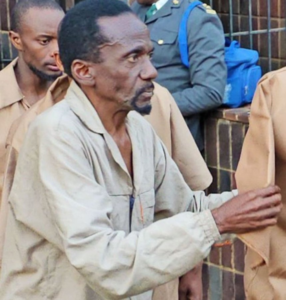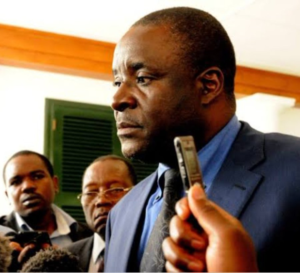ZIMBABWE’S DEMOCRATIC FABRIC UNDER THREAT: A TALE OF CONSTITUTIONAL DISREGARD
In the heart of Zimbabwe, a disturbing narrative unfolds, revealing a blatant disregard for constitutional mandates and democratic principles. Since President Emmerson Mnangagwa’s rise to power, his administration has been marred by a series of controversial decisions and actions that threaten the very foundation of the nation’s constitutional democracy. This tale of constitutional neglect not only questions the integrity of the presidential office but also casts a long shadow over the nation’s commitment to upholding the rule of law and democratic governance.
The journey into this labyrinth of governance malpractices began with the dramatic and controversial appointment of General Phillip Valerio Sibanda as the commander of the Zimbabwe Defence Forces, a move that blatantly flouted constitutional protocols. This incident, though later reversed under significant public and political pressure, was a forewarning of a governance style characterized by a flagrant disregard for legal frameworks and democratic norms.
Tracing the roots of these breaches leads us back to the seismic political shift of the 2017 coup, which dramatically reshaped Zimbabwe’s political landscape. The aftermath of this coup unveiled a compromised judiciary, revealing an implicit bargain among judicial members that has since undermined the independence and impartiality of the country’s legal system. This compromised judiciary has facilitated Mnangagwa’s administration in perpetuating a series of unconstitutional actions, further eroding the democratic fabric of the nation.
Among these infractions was the oversight of Phelekezela Mphoko’s constitutional duty to act, a glaring omission in the procedural integrity of governance. Additionally, Mnangagwa’s controversial inauguration following disputed general elections cast serious doubts on the legitimacy of his presidency. The pattern of constitutional violations extends to the questionable appointment of provincial ministers and the neglect to appoint a State Security or Intelligence minister, demonstrating a governance approach that sidelines constitutional mandates and democratic processes.
The Football Association of Zimbabwe (FAZ) has not been immune to these governance issues, with its recent electoral controversies mirroring the broader constitutional disregard plaguing the nation. The conflict of interest involving Justice Loice Matanda Moyo further exacerbates public mistrust in the judiciary’s impartiality, undermining the pillars of democratic governance.
The Sibanda debacle, a striking example of Mnangagwa’s constitutional disregard, underscores a broader, more troubling trend of governance malpractices. These are not isolated incidents but indicative of a systemic erosion of constitutional governance, each act weakening the democratic principles that should anchor the nation.
This persistent disregard for constitutional norms exposes Mnangagwa to the potential threat of impeachment. If political adversaries leverage these violations, it could catalyze a political crisis, raising the stakes in Zimbabwe’s already volatile political landscape.
The current trajectory under President Mnangagwa’s administration poses not merely a challenge to his presidency but signals a deeper crisis in governance. As Zimbabwe grapples with these constitutional violations, the overarching question looms: will the nation reaffirm its commitment to constitutionalism and democracy, or will these ideals be overshadowed by the pursuit of power and political expediency? The resolution of this dilemma will not only define Mnangagwa’s legacy but also determine Zimbabwe’s future and its standing among democratic nations.





